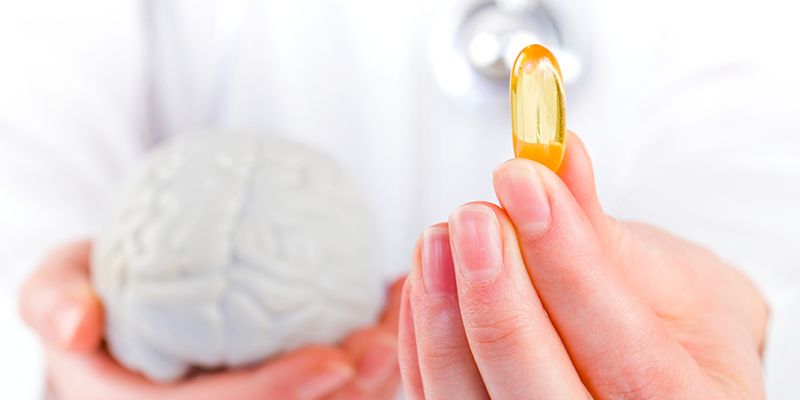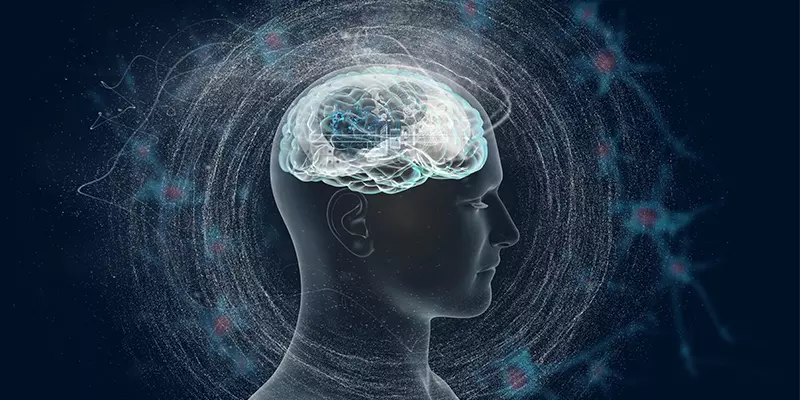
Did you know that six percent of the population will have a significant mood disorder sometime in their life? Only 20 to 25 percent of these people ever seek help. This is unfortunate, because mood disorders are treatable. And treatment can be further enhanced by supplementing with omega-3 fish oils.
Let’s dive in!
The History of Inherited Omega-3 Deficiency
Multiple findings directly correlate with the rise in ADHD and other mood disorders since the 1990s. Many parents of today’s teens were born in the 1960s and 1970s, a time period in which farming methods and dietary values shifted significantly for the worse.
During the 1960s and 70s:
• Omega-3-deficient oils like corn and soy oil became prevalent.
• Farm animals moved from eating grass to grain. Since omega-3s are present in grass and algae, much of today’s grain-fed cattle contain less of these essential fatty acids.
• Processed convenience foods (which are high in omega-6s) gained popularity.
The Future of Omega-3 Deficiency
Although many infant formulas are now fortified with DHA, an important omega-3 fatty acid for brain development, many American children eat a consistent diet of processed convenience foods that are completely void of omega-3 fatty acids and extremely high in poor-quality omega-6 fatty acids.
Diets lacking omega-3 fatty acids can have worsened effects over consecutive generations. This means that we may very well see a continued, and even elevated trend of cognitive impairment conditions in both the young and old over time.
In general, Americans eat 11 to 30 times the amount of omega-6s as compared to omega-3s. When this ratio is out of balance, omega-6s promote inflammation within the brain and other tissues in the body. Foods such as:
• Vegetable oils
• Baked goods
• Crackers
• Cereals are high in omega-6 fatty acids.
Furthermore, high heat and processing de-stabilizes these oils, making them even more pro-inflammatory. Do your best to limit omega-6s – the brain health of your grandchildren may depend on it.
But the good news keeps coming. Unlike psychiatric drugs, the side-effects of Omega-3 fatty acids tend to be positive. Omega-3s are good for multiple areas of the brain and body, such as:
• Heart
• Skin
• Hair
• Nails
• Overall health
Our experienced staff will help you learn more about your brain. If you’re ready to take control over your future, call us today at 888-288-9834 or visit our website to schedule an appointment.





Dear Dr Amen and staff,
I am so pleased and happy to see you speaking the truth about our healthcare. Thank you for all of your informative articles and information.
I was diagnosed with terminal cancer in 2000 and was given a few months to live. I did not do traditional therapies. I learned a new way to take care of my body. I now help others overcome cancer naturally through diet and supplements. I say, “healthy body, healthy brain” but we both mean the same thing! Living a healthy lifestyle is so much better!!
Comment by Jeanie Traub — December 29, 2017 @ 6:57 AM
Thank you for this confirmation. When I had my concussion my Naturopathic Doctor increased my Fish Oil to a pretty high dose for about a year. I continue to take about 2000 a day, 4 years later.
Comment by Cathy Stuart — December 29, 2017 @ 7:43 AM
As a leading prevention scientist in the U.S., I was aware of demographic data showing showing the rise in depression across birth cohorts by decades in the late 1990s and early 2000’s. I happened across the study giving omega-3 supplementation to British prisoners (Gesch et al. 2002 in the British Journal of Psychiatry). That study showed a significant reduction in violent incidents among violent felony offenders from n3 supplementation. As is my custom as a good scientist, I read through the citations and references careful. I discovered a name that was repeated, Joseph Hibbeln, who turned out to be the head of the molecular membrane laboratory at the National Institutes of Health. I read his articles, and he was decidedly an A-list scientist. I visited his lab for a whole day, and the science on n3 is impeccable and fits shifts in culture correlated with the increase in depression, and the randomized control studies support the hypothesis. To lean more, go to www.pubmed.gov, and look up Dr. Joseph Hibblen.
Comment by Dr. Dennis Embry — December 29, 2017 @ 3:17 PM
My husband has two clotting disorders – Factor V leiden and MTFHR. I have read warnings about him not taking fish oil because it interferes with his Lovenox. He has depression and PTSD and was diagnosed with esophageal cancer almost four years ago. Please advise.
Comment by Susan Carlson — December 29, 2017 @ 6:33 PM
My husband had a bicycle accident that lead to 3 separate times of blood clots in his legs.
We worked hard between the episodes to not have them return. Now the Dr. has him on Xylitol permanently. With that comes a bunch of vitamins, herbs, etc… that he shouldn’t take. One is Omega-3s. He is ADHD and forgetful and so I am really bummed. We sort of am choosing to take some stuff and watch for bleeding.
Comment by Christine Horne — December 30, 2017 @ 7:35 AM
Thank you for this info. I have a family member who recently was put on 7 different anti depression and anxiety meds. I am glad to know there are supplements that can combat this or maybe alleviate it all together. I see I have more reading to do!
Comment by MMButler — December 30, 2017 @ 8:45 AM
How much omega 3 at one time? I have read more than a teaspoon at a time may cause liver problems- how to take the higher doses? Thank you
Comment by SUSAN Hardwicke — December 30, 2017 @ 2:51 PM
I would like to know how you cured your cancer. My sister in law went completely natural for her breast cancer and she died. That scared me because I have said that if I had can error I would do natural methods but now I don’t know.
Comment by Shirley — December 31, 2017 @ 2:29 AM
It’s a grea article but where do you get quality omega 3?
Comment by Jon — December 31, 2017 @ 11:18 AM
What dosage of Omega-3 daily would you recommend for me? I suffer from episodic depression. I am male, 68 years old and have had by-pass heart surgery (1995) and a slight heart attack one year ago. I am taking Crestor 20mg for high cholesterol.
Comment by Cyril Shugarue, Sr. — December 31, 2017 @ 2:00 PM
flax seed, chia seed. Buy organic . Get the cold milled ground or buy the seed whole and grind it fresh in a coffee grinder.
Comment by Clyde — January 12, 2018 @ 8:33 PM
How did you cured your cancer naturally without chemotherapy and radiation
Comment by Josette — January 31, 2018 @ 7:51 AM
Psychiatrist put you on so many drugs that you never know which one is working and the side effects are horrid. I once had a psychiatrist give me 7 drugs to start taking. I asked him how would we know which one works if any. He said we will take you off one at a time until we find the one that works. Wouldn’t it be smarter to try one at a time and figure it out that way. Sometimes the withdrawal is worse . I did not take them. I went to another Dr.
Comment by Della Trychel — March 5, 2018 @ 8:16 AM
I too am curious how you helped heal yourself, can you share?
Comment by Julie. — August 22, 2018 @ 10:18 AM
do you take it in pill form and if so how many mg are in one pill? 2 of mine =1,000 and I currently take 10 pills/day so I need to up them!
Comment by Tabitha — December 30, 2018 @ 6:58 AM
Looking for recommended amount of fish oil for concussions.
Comment by Tabitha — December 30, 2018 @ 6:59 AM
Hello Tabitha, here are some links to additional information:
https://amenclinics.com/blog/how-omega-3-fatty-acids-change-your-brain/
https://amenclinics.com/blog/can-omega-help-prevent-alzheimers/
To inquire about supplements for your specific needs, please visit: https://www.brainmdhealth.com/
Comment by Amen Clinics — January 2, 2019 @ 11:00 AM
Christine- Xylitol? I think you might have the wrong name or spelling, as this is a form of a sugar that is put in chewing gum, sometimes and Peanut Butter.
Comment by Becky — March 15, 2019 @ 4:44 AM
Google Bodybio oil and read the paper written Bodybio Bulletin.
Comment by Chris Bournr — March 15, 2019 @ 5:22 AM